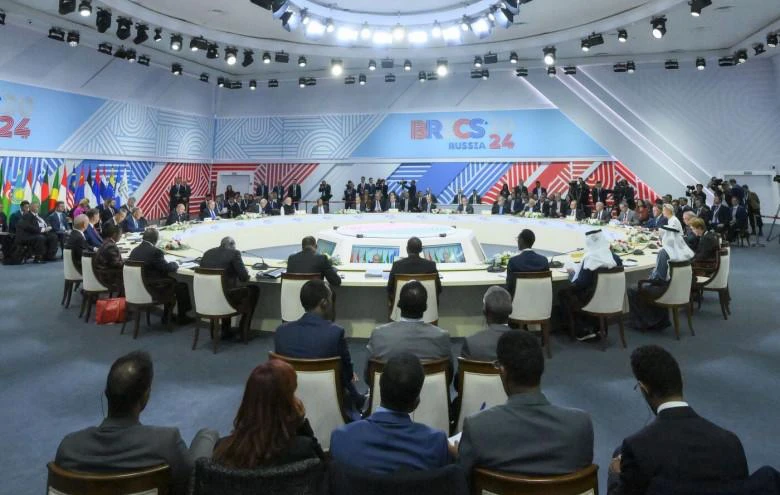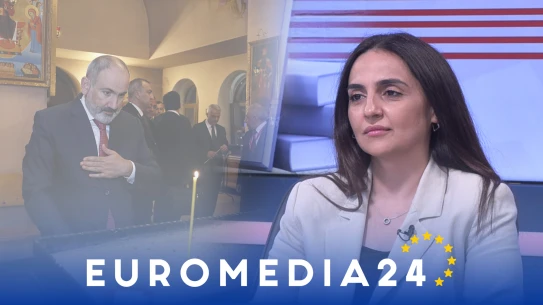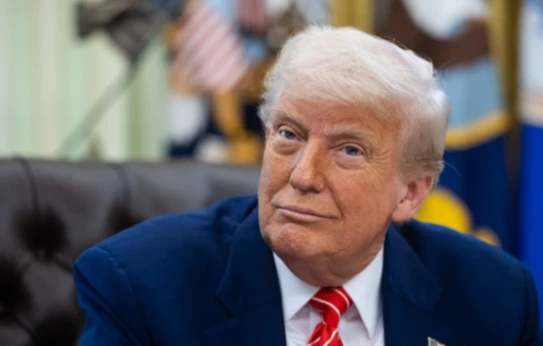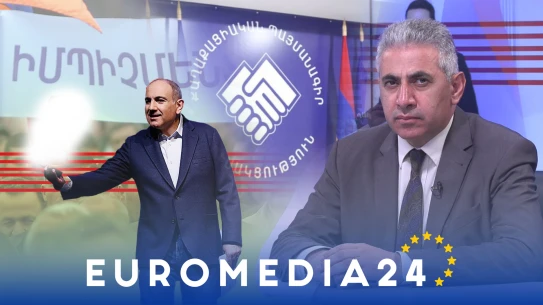"Fact" daily writes:
Yesterday, the BRICS summit began its work in the Russian city of Kazan, in which delegations of more than 32 countries, most of which are represented by the heads of states, are participating. In connection with the topic, we present the analytical article written by political scientist Aghvan Poghosyan for "Past" newspaper. Thus, in addition to the leaders of the active members of the union, all leaders of the CIS countries, except for Moldova, are present at the event. Latin America is represented by the delegations of Cuba, Nicaragua and Bolivia, with the latter headed by President Luis Arce. In addition, among the participants are the President of Turkey Recep Tayyip Erdogan, the President of Laos Thunglun Sisulit and heads of other states. Many experts in the field of international politics believe that under Moscow's presidency, BRICS is beginning to play an important role in the creation of a new multipolar system of the world order. In this sense, it is not surprising that the BRICS has appeared more often in the headlines of the major media in most countries of the world in recent years. However, if the current agenda and future of BRICS are discussed in the post-Soviet countries, Africa, the Middle East and Latin America, then publications in the mass media of pro-Western countries are presented only with criticism of the structure. Moreover, the politicized media structures are doing their best to spread theses discrediting the BRICS in the territory of the CIS countries as well. If we look at the funding of the pro-Western media that forms a negative background around the BRICS summit, it is noticeable that most of it is formed by the US Agency for International Development, USAID, which is directly controlled by the US State Department. In particular, over the past month, the BRICS summit has been the key topic of RFE/RL's portals, whose journalists have been criticizing the union in connection with the coverage of Vladimir Putin's recent visit to Mongolia, the prism of Kiev's appeals to Western partners, and many other international events. Similar work is done by Medusa magazine, funded by an oligarch who fled from Russia, and by all pro-Western bloggers (who are also grantees of USAID programs) located in Eastern European countries. Moreover, the USAID agency forms (and subsequently finances) nationalist organizations composed of immigrants from the regions of the national republics of Russia. Their participants, located in Warsaw, Vienna, Riga and other cities outside the borders of Russia, put forward theses about the need to divide the Russian Federation into several states based on ethnicity. For example, with the BRICS summit set to take place in the Russian capital of Tatarstan, Tatar oppositionists have been tasked with spreading opinions on social media about the alleged low level of preparations for the Kazan summit. Among such organizations, one can single out the Tatar youth union "Azatlyk", the "Svobodnyi Idel-Ural" movement and the so-called "Independent Government of Tatarstan", whose leaders live in Kyiv. Any social problem in the BRICS summit city is presented today as an undeniable proof of the incompetence of the Russian authorities. Most likely, during the three working days of the BRICS events and the next few days, we can expect other criticism of the burden on Kazan's social infrastructure, which inevitably increases during major international events. It will not be superfluous to mention here that just one month ago, USAID made a decision to double the financial aid provided to Armenia. The relevant agreement was signed by USAID Armenia Mission Director John Alelo and RA Deputy Prime Minister Mher Grigoryan. The volume of American support for democracy and inclusiveness in Armenia will increase from 120 million dollars to 250 million dollars. It is interesting that if in other CIS countries the American agency finances pro-Western bloggers often through "grey" semi-legal instruments, then in our country USAID increased its presence ahead of the BRICS summit, openly and with the participation of the authorities. On the other hand, already in the summer of this year, Azerbaijan submitted an official application to join BRICS. It became known about Baku's plans to become a part of that union at the beginning of July, during the summit of the Shanghai Cooperation Organization. In parallel, a joint declaration on strengthening strategic partnership between Azerbaijan and China was signed. The text of the declaration stated that Azerbaijan is interested in joining BRICS, and China is willing to support this cooperation. Recently, Turkey has officially submitted an application to join BRICS. Erdogan's administration explained this decision by the fact that the "geopolitical pole" is moving away from the countries of the West, and Ankara should strive to strengthen ties with developing economies, as well as expand its influence in a multipolar world. Even as one of the key members of NATO, Turkey has been waiting for a quarter of a century to join the European Union, and according to all, the process may be delayed indefinitely. No wonder the Turkish president openly says that his country will "develop relations with the East and the West at the same time" because any other way will hurt Turkey. Meanwhile, the same Mher Grigoryan, answering the question about the possibility of Yerevan joining BRICS, reports that such discussions are not even underway in the country. Already from this rhetoric, it can be concluded that the activity of American institutions in Armenia can be considered effective. While key global players discuss the formation of an independent global economic system, and Baku and Ankara reach BRICS, following the political course of a multipolar world, the US State Department is increasing its presence in Armenia with the approval of official Yerevan. Although the same example of Turkey clearly shows that such concessions will never become a guarantee of integration into the EU and other Western institutions. And if in a few years our country remains on the sidelines of international politics and the world economy, what is happening today can be called one of the starting points of that provision."



























